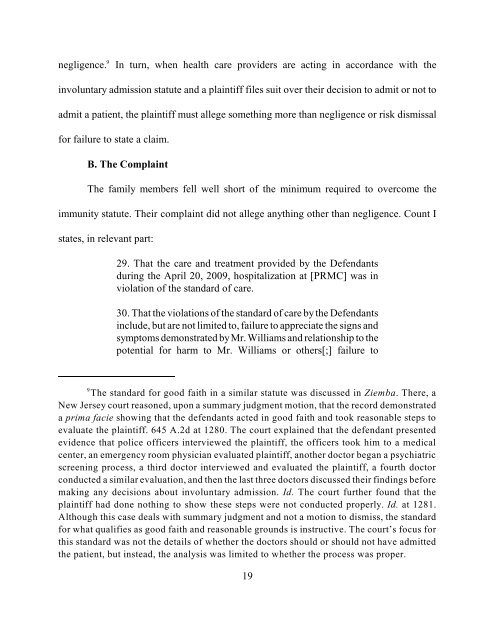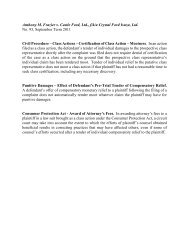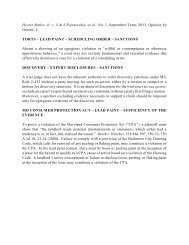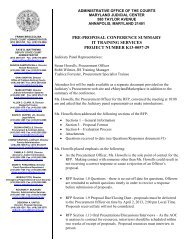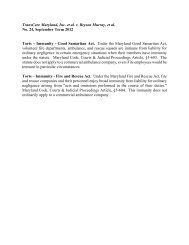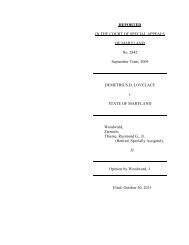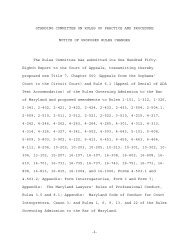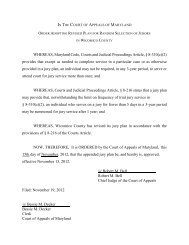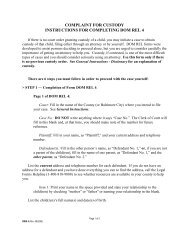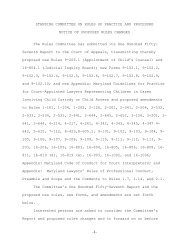0284/12 - Maryland Courts
0284/12 - Maryland Courts
0284/12 - Maryland Courts
You also want an ePaper? Increase the reach of your titles
YUMPU automatically turns print PDFs into web optimized ePapers that Google loves.
9<br />
negligence. In turn, when health care providers are acting in accordance with the<br />
involuntary admission statute and a plaintiff files suit over their decision to admit or not to<br />
admit a patient, the plaintiff must allege something more than negligence or risk dismissal<br />
for failure to state a claim.<br />
B. The Complaint<br />
The family members fell well short of the minimum required to overcome the<br />
immunity statute. Their complaint did not allege anything other than negligence. Count I<br />
states, in relevant part:<br />
29. That the care and treatment provided by the Defendants<br />
during the April 20, 2009, hospitalization at [PRMC] was in<br />
violation of the standard of care.<br />
30. That the violations of the standard of care by the Defendants<br />
include, but are not limited to, failure to appreciate the signs and<br />
symptoms demonstrated by Mr. Williams and relationship to the<br />
potential for harm to Mr. Williams or others[;] failure to<br />
9<br />
The standard for good faith in a similar statute was discussed in Ziemba. There, a<br />
New Jersey court reasoned, upon a summary judgment motion, that the record demonstrated<br />
a prima facie showing that the defendants acted in good faith and took reasonable steps to<br />
evaluate the plaintiff. 645 A.2d at <strong>12</strong>80. The court explained that the defendant presented<br />
evidence that police officers interviewed the plaintiff, the officers took him to a medical<br />
center, an emergency room physician evaluated plaintiff, another doctor began a psychiatric<br />
screening process, a third doctor interviewed and evaluated the plaintiff, a fourth doctor<br />
conducted a similar evaluation, and then the last three doctors discussed their findings before<br />
making any decisions about involuntary admission. Id. The court further found that the<br />
plaintiff had done nothing to show these steps were not conducted properly. Id. at <strong>12</strong>81.<br />
Although this case deals with summary judgment and not a motion to dismiss, the standard<br />
for what qualifies as good faith and reasonable grounds is instructive. The court’s focus for<br />
this standard was not the details of whether the doctors should or should not have admitted<br />
the patient, but instead, the analysis was limited to whether the process was proper.<br />
19


